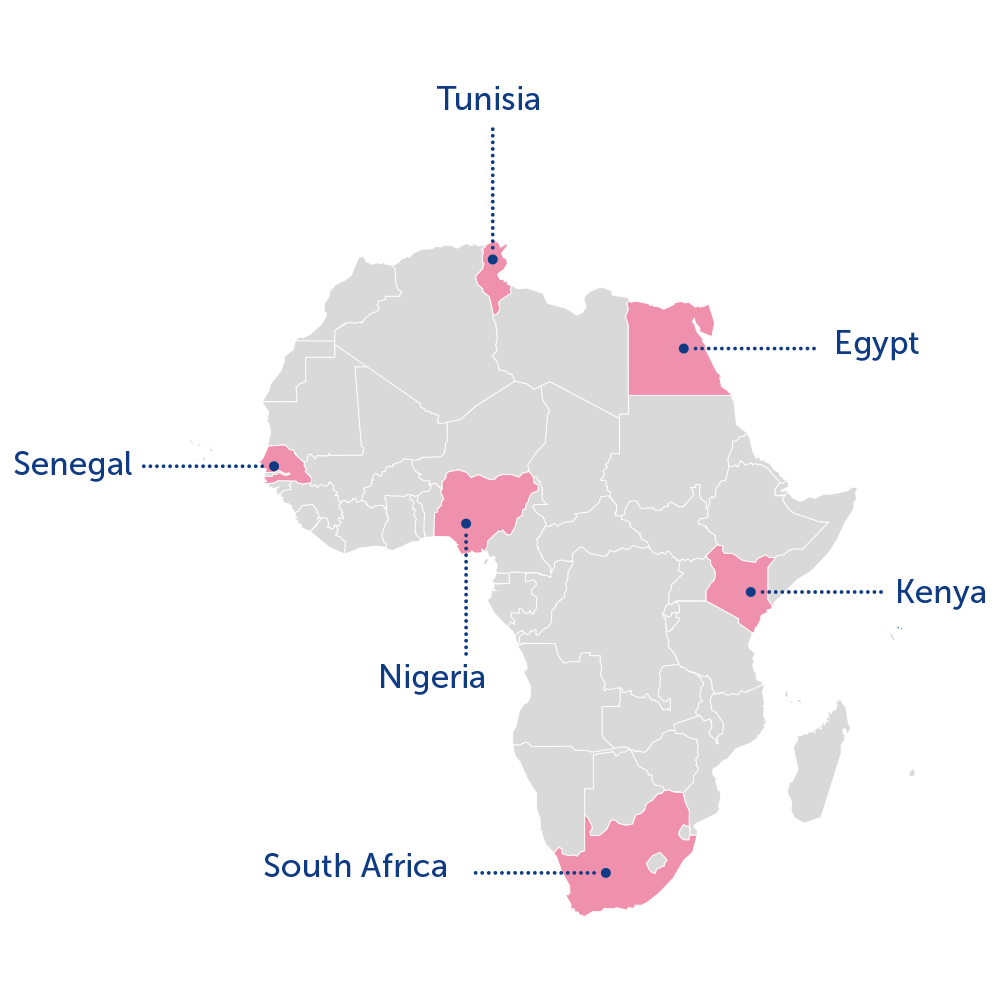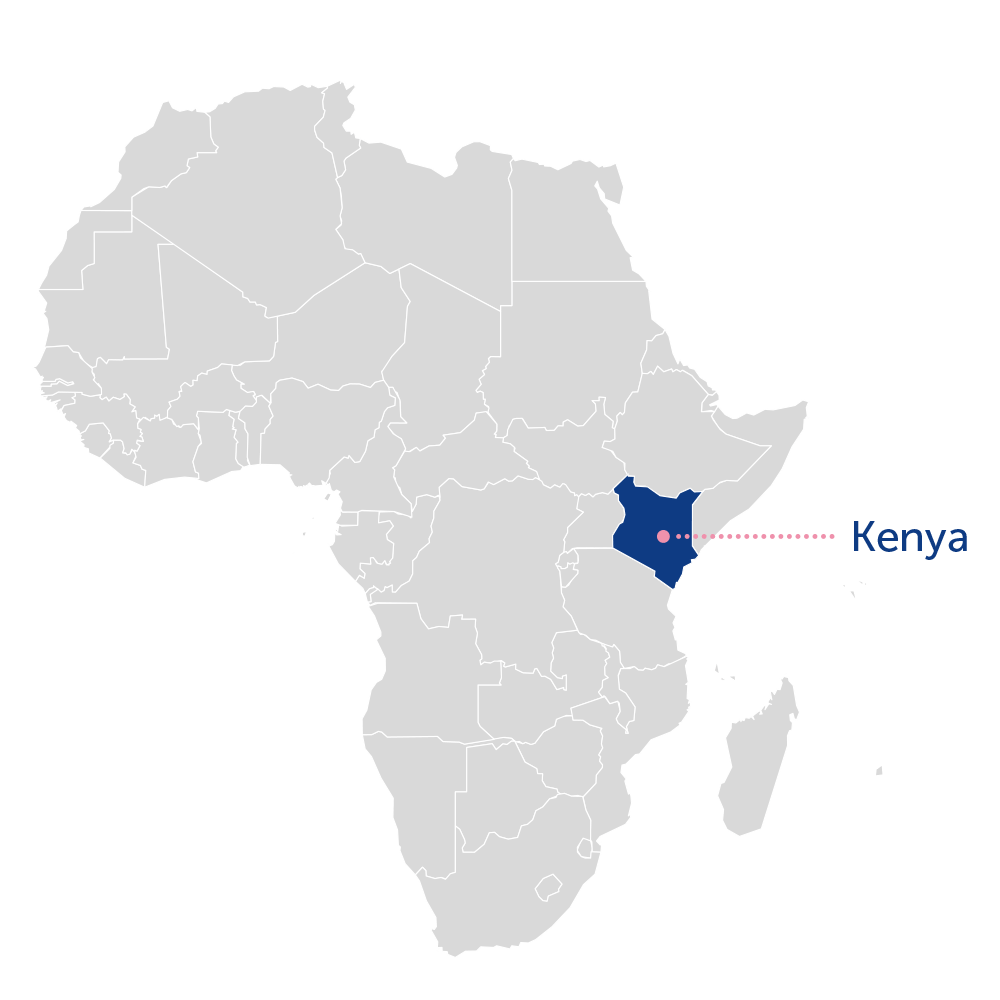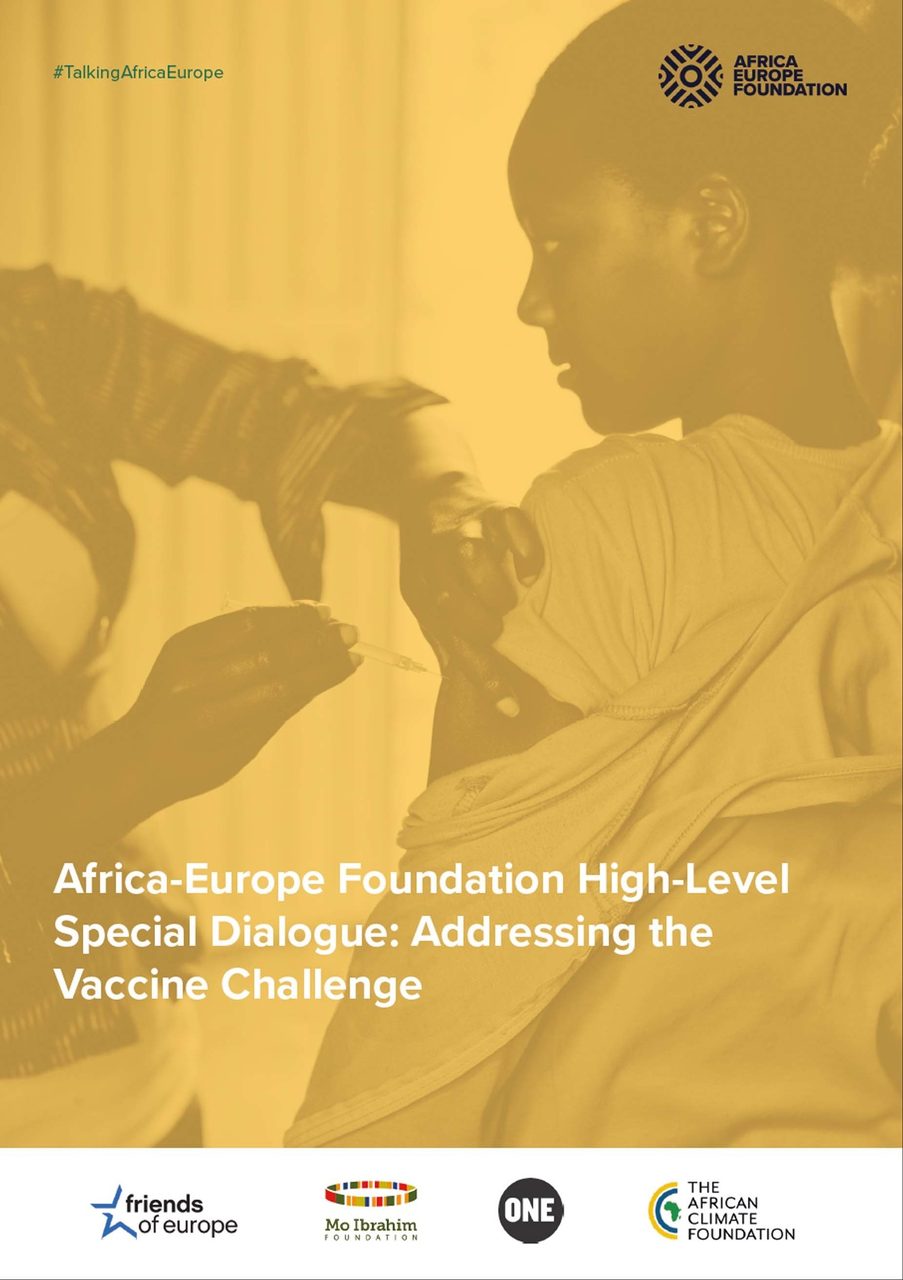A key topic during the EU-AU Summit in February 2022 was vaccine inequity and manufacturing capacity. This was also explored in a debate ahead of the summit organised by the Africa-Europe Foundation, and supported by research from the Mo Ibrahim Foundation.
Inequitable access to vaccines
The COVID-19 pandemic continues to heavily impact the health systems, economies and day to day lives of citizens in both Africa and Europe.
In the final declaration of the EU-AU Summit, it was agreed that the immediate challenge for the partnership is to ensure fair and equitable access to vaccines, and a number of positive developments for Africa’s vaccine manufacturing capabilities were discussed and agreed.
The strong economic case for building vaccine manufacturing capacity is a no-brainer.
Abebe Selassie, IMF


African countries need to increase six-fold the number of people being vaccinated every week.
Dr Matshidiso Moeti, WHO

6 African countries will receive the technology to produce mRNA vaccines, but trials and licencing could delay approval
mRNA transfer hub
The WHO mRNA technology transfer and training hub will support low- and middle-income countries to produce their own vaccines, medicines and diagnostics and to build capacity for quality manufacturing - for COVID-19 but also to treat other diseases.
Although the team in South Africa, the first of the 6 African countries that will receive the technology needed to produce mRNA vaccines, have managed to recreate the Moderna mRNA coronavirus vaccine, clinical trials and acquiring the appropriate licence could delay approval.
It is possible to increase capacity in terms of vaccinations but we need funding, political will, and, first and foremost, sustainable investment in health systems to make it work.
Abou Kampo

Governments that are really serious about ensuring that the world has access to vaccines should ensure that we approve the TRIPS waiver.
President Ramaphosa

Mobile vaccine factories
BioNtech has developed a vaccine factory made from shipping containers that it plans to ship to Africa as assembly kits to ease the huge disparities in global COVID-19 vaccine access. The company said it expected to ship the ‘BioNTainers’ to Rwanda and/or Senegal - with South Africa potentially joining the list of recipients of the mobile labs. Local production of the vaccines will start within 12 months of the container installation.
Moderna's plant
Moderna has signed a memorandum of understanding (MOU) with Kenya’s government to build its first mRNA vaccine manufacturing plant in Africa, aiming at producing up to 500 million doses of vaccines a year for the continent.

Further initiatives
Alongside these initiatives, the Partnership for African Vaccine Manufacturing (PAVM), launched in April 2021, aims to boost Africa’s ability to deal with its general vaccine needs by 2040, while a key pillar of the 6th EU-AU Summit is the Team Europe Initiative (TEI) on Manufacturing and Access to Vaccines, Medicines and Health Technologies in Africa (MAV+).
MAV+ works at continental, regional and national levels to strengthen the African pharmaceutical system and regional manufacturing capacities.
Learning from the current health crisis, we are committed to supporting the full-fledged African health sovereignty, in order for the continent to respond to future public health emergencies.
Sixth EU-AU Summit joint declaration




